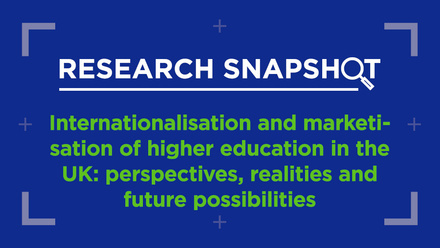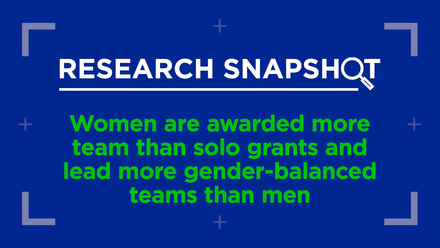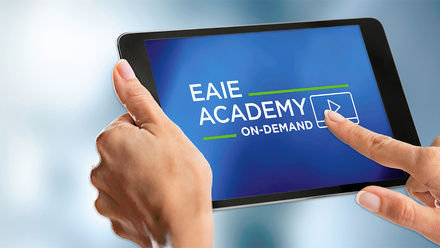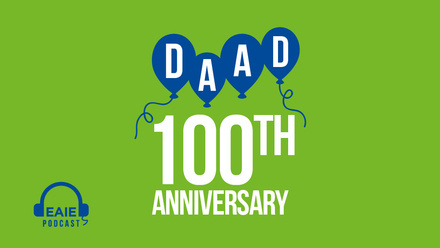Why higher education should cultivate competences for democracy

If we ask the average person in the street why someone should take education, the answer is likely to be a variation on the topic ‘getting a good job’. That is of course a valid reason, and it is strongly reflected in public policy. So, the answer is not wrong but it is incomplete. Reducing education to a single purpose does both the education community and society at large a disservice.
The Council of Europe has defined four major purposes for education:
- Preparation for the labour market
- Preparation for life as active citizens in democratic societies
- Personal development
- Development of a broad and advanced knowledge base
All four purposes are equally important, and they are not mutually exclusive. Rather, they support and reinforce each other: many of the competences that make us attractive on the labour market also prepare us for active democratic citizenship and stimulate our personal development.
Democratic culture
For the “other three purposes” – and in particular preparation for democracy – to be given their rightful place in education policy and practice, we need to be able to say something about the competences our schools and higher education institutions should provide their students with. We need to say something about learning outcomes.
Many of the competences that make us attractive on the labour market also prepare us for active democratic citizenship
This is why the Council of Europe has developed a Reference Framework of Competences for Democratic Culture (RFCDC).
The term ‘democratic culture’ has a history of its own. I am writing this as we commemorate the 60th anniversary of the construction of the Berlin Wall. When that wall fell, and with it several repressive regimes, there was a naïve belief that if only constitutions were changed and elections held, we would have democracy. It took only a few years before we saw that, however important elections, laws and institutions are, they cannot be democratic unless they build on a set of attitudes and behaviours that seek to resolve conflicts through dialogue rather than violence, that accept diversity of views as healthy and natural, and that see cultural diversity as a strength rather than as a threat. In a word, democratic institutions, laws and elections must build on a culture of democracy.
Competences for democracy
The RFCDC defines 20 competences organised around four clusters: values, attitudes, skills, and knowledge and critical understanding. Examples of competences are:
- Valuing human dignity and human rights
- Openness to cultural otherness and to other beliefs, world views and practices
- Tolerance of ambiguity
- Analytical and critical thinking skills
- Skills of listening and observing
- Knowledge and critical understanding of the self
- Knowledge and critical understanding of the world
The model of the competences required for democratic culture is complemented by descriptors for each competence, labelled basic, intermediate and advanced. By way of example, “shows interest in learning about people’s beliefs, values, traditions and world views” is a basic indicator for openness to cultural otherness; “expresses an appreciation of the opportunity to have experiences of other cultures” an intermediate; and “seeks and welcomes opportunities for encountering people with different values, customs and behaviours” an advanced descriptor for the same competence.
A set of guidance documents explores how the RFCDC can be used – and be of use – for specific purposes, such as curriculum development, assessment, or pedagogy. There is also a specific guidance document for higher education, and further documents are in the works.
Democratic competences in action
The RFCDC is a tool with great potential but its real utility will be decided by its use. Three of the discussions we had in developing the RFCDC may be of particular interest.
Some comments maintained that values cannot be taught and certainly not assessed. Firstly, that does not ring true. Part of what teachers do from the earliest stages all through higher education is precisely to develop consciousness of and commitment to key values in their students. In the European Higher Education Area, the European Students Union has been among the voices joining the Council of Europe in underlining the importance of values in and through higher education. Secondly, teachers assess values and the behaviour that builds on (or contradicts) them regularly in class, even if “behaviour” may no longer be a regular subject of formal grading in many education systems. But if students show disrespect toward someone because of his/her disability, ethnicity or beliefs, teachers would not fulfil their role if they did not intervene. That is true of primary school but also of higher education. On a broader scale, combatting hate speech is an eminent education issue.
Another discussion concerned the relationship between theory and practice. Some comments allowed that education may have a role in developing knowledge of the theory of democracy, they maintained it has no business encouraging students to convert theory into practice. It may be worth noting that people who held this view rarely referred to other aspects of education than knowledge. Part of the reaction is understandable. Some of our education systems come out of a tradition where political education was part of the curriculum. In other systems, political correctness may be a difficult issue. The RFCDC is not intended to replace either. It does, however, build on the belief that democratic competences cannot be developed through theory alone, but that they must be exercised in practice in ways that are commensurate with students’ age and education level. In higher education, student participation in governance is one of Europe’s stronger points and also one of the fundamental values of the EHEA.
A third objection concerned the concept of critical thinking. Some see critical thinking merely as “tearing down”. That is actually the easy part – the more difficult part is developing alternatives. Granted, some governments may be even less enthusiastic about providing students with the competences to construct alternatives than they are with the notion of identifying problems with what exists. Both are, however, essential to a culture of democracy.
To further a culture of democracy through education, we need to revise our understanding of learning outcomes
To further a culture of democracy through education, we need to revise our understanding of learning outcomes. The classic definition is what students know, understand and are able to do. This definition, however, ignores the ethical dimension of education. We may be able to do things we should abstain from doing. I will not provide examples, as history is full of them.
We need to add this fourth element – what students are willing to do, and hence to abstain from doing – to our definition of learning outcomes if we want education to play its rightful role in developing and maintaining the culture of democracy that make our society one we would like to live in and that we would like to leave for our children and grandchildren.






